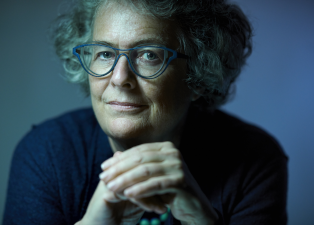
03.07.2024 - Distinguished Lecture Series: Sabine Süsstrunk (EPFL Lausanne)
We are pleased to announce our upcoming Distinguished Lecture Series talk by Sabine Süsstrunk (EPFL Lausanne)! The talk will take place in person on July 3rd, in room UN32.101. Professor Süsstrunk will also be available for meetings on July 3rd. If you are interested in scheduling a meeting, please email .
Sabine Süsstrunk is Full Professor and Director of the Image and Visual Representation Lab in the School of Computer and Communication Sciences (IC) at the Ecole Polytechnique Fédérale (EPFL), Lausanne, Switzerland. Her main research areas are in computational photography and imaging, color computer vision, and computational image quality and aesthetics. She received the IS&T/SPIE 2013 Electronic Imaging Scientist of the Year Award for her contributions to color imaging, computational photography, and image quality, and the 2018 IS&T Raymond C. Bowman and the 2020 EPFL AGEPoly IC Polysphere Awards for excellence in teaching. Sabine is a Fellow of ELLIS, IEEE, and IS&T, and is President of the Swiss Science Council (SSC).
Title: On Generating Image and Video Hallucinations
On Generating Image and Video Hallucinations
“Hallucination” is a term used in the AI community to describe the plausible falsehoods produced by deep generative neural networks. It is often considered a negative, especially in relation with large language models or medical image reconstruction. Yet, in many computational photography applications, we rely on such hallucinations to create pleasing images. It often does not matter if all (or any) information was present in the real world if the produced falsehoods are visually plausible. Starting from that premise, I will present our recent work on hallucinations in image reconstruction, semantic editing, and texture synthesis, using different generative models such as diffusion networks, neural radiance fields, and neural cellular automata. With a nod to the dangers some of these hallucinations might pose, I will also briefly discuss our work on deep fake detection.
Date: July 3, 2024
Time: 11:30
Place: Universitätstraße 32.101, Campus Vaihingen of the University of Stuttgart.
Looking forward to seeing you all there! No registration necessary.
Watch the Lecture on YouTube: ELLIS Unit Stuttgart Distinguished Lecture by Sabine Süsstrunk


